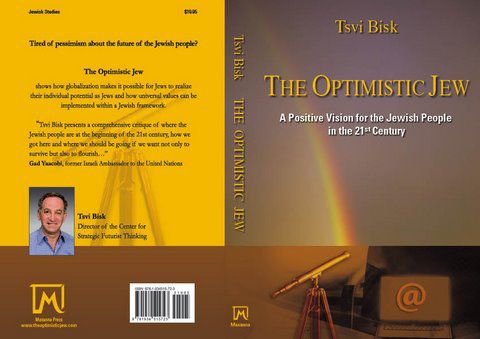This is a thought provoking article from Futurist Tsvi Bisk.
By Tsvi Bisk
Oil has become a double edged sword. It can now be wielded against the oil producing states as much as it can be wielded by them. More specifically it can be used by the West to neutralize Iran’s nuclear threat without military action. The accepted wisdom is that Iran is immune to serious sanctions or military action because it is a major oil exporter and any vigorous steps taken against them would send oil prices through the roof and destabilize the world economy. This is simply not the case, especially when oil is hovering around $50 a barrel.
The West has a medium term grand strategic trump card – the strategic reserves of the International Energy Agency (IEA). It also has a short term tactical advantage – redundant production capacity caused by the economic turndown.
The International Energy Agency and its constituent members have four billion barrels of oil in strategic reserves. This enables them to release two and a half million barrels a day onto the market for a period of over four years. This enables the West, led by the United States, to boycott or disable Iranian oil production.
Iran could not finance its nuclear program if it did not have the revenues of two and a half million barrels of oil a day available for export. Nor, unlike North Korea, could it starve its people to continue the program. Its sociological and cultural character would not permit this.
Iran also has to import 30%-40% of its refined oil products and uses over half its petrodollars to subsidize and keep afloat various aspects of its failed economy. A reverse oil embargo could collapse this sordid regime enabling its modern, essentially pro-western younger generation to take over their country. At the least it would render the present regime impotent.
The question is what the IEA strategic reserves are for and is Iran getting the bomb a strategic threat? Are the strategic reserves to be used only in reaction to a strategic interruption in oil supply or can they be used proactively to disrupt a much greater potential threat to the long term security and wellbeing of the West?
President Obama’s energy policies are the perfect backdrop to this policy. For the first time since the 1970s oil embargos, the leader of the Free World is not only talking but doing and showing he is serious – one risks thinking he is bluffing about energy at one’s peril.
This is not an academic issue. It relates to the Middle East peace process and the potential for nuclear war in the Middle East. The simple fact is that Israel cannot and will not tolerate Iran getting the bomb, diplomatic casuistry notwithstanding. An Iranian regime consistently threatening the very existence of Israel, in possession of an atomic bomb and missiles capable of delivering an atomic warhead would be a global “Sum of All Fears”. An atomic attack on Israel would kindle a response that would make 70% of the world’s known oil reserves unusable for the next 30,000 years, collapsing the word economy into an economic black hole for at least a century.
Recently the British Daily Telegraph reported on ways that Israel is already employing to hinder Iran’s nuclear program – from setting up straw companies selling the Iranians inferior parts to assassination of key players in the Iranian nuclear program. It is understood that direct military action against Iranian nuclear facilities is, unlike the attack on the Iraqi reactor in the 80s, not doable. The Iranians have spread the program around to about 1,000 different sites.
Attacking one or two Iranian oil ports (overtly or covertly) would be much easier for the Israelis. Deductive logic dictates that this gambit is being seriously discussed in Israeli intelligence circles.
The caveat to such a gambit is obvious – it would constitute a major de-stabilizing event in the Persian Gulf. A United States led embargo on Iranian oil exports is the much preferable option.
To be sure the above might drive up oil prices to 60-70$ a barrel. Iran will react by intimidating its Gulf neighbors and the psychological impact will drive up prices. This could however be beneficial since we are headed for supply shortfalls and 150$ a barrel oil by 2011-12. This has been called the “slingshot effect”. The slingshot effect will be less damaging if it takes place from a 70$ base than if from a 35$ base; so even the temporary inconvenience of a rise in oil has its benefits.
This policy might be only relevant for the next two-three years during which time the various negative production trends well documented in various professional publications gain traction. Of course the alternative energy thrust might also gain traction quicker than expected, in which case this could turn into a longer term approach to other oil bullies (Putin and Chaves come to mind).
In the meantime, the political benefits could be even more far-reaching if we turn another piece of accepted wisdom regarding Middle East peace on its head. Most “experts” advocate the following. First Israel and the Palestinians make peace. This will facilitate a Syrian-Israeli peace deal. Peace with the Syrians will neutralize aid to Hamas and Hezbollah and thus weaken the influence of Iran.
I suggest the reverse order. Emasculating the economic power of Iran (by way of the reverse oil embargo) will weaken Syrian militancy and starve Hamas and Hezbollah. This will make Syria more amenable to a politically doable peace deal with Israel. Weakening Hamas will strengthen the Palestinian Authority and reassure Israel enabling both to enter into serious negotiations towards a two-state solution.
There is a fundamental question in regards to the geo-political aspects of energy in the 21st century. What will characterize the West – under the leadership of the United States – self-indulgence, or self discipline and self-reliance? Do we have the will to do what needs to be done or do we continue our obsequious groveling before oil blackmail and the Jihadist terror petrodollars finance?
Mr. Bisk is an American Israeli Futurist. He is the Director of the Center for Strategic Futurist Thinking and Contributing Editor for Strategic Thinking for The Futurist magazine. He is also the author of The Optimistic Jew: A Positive Vision for the Jewish People in the 21st Century (available from Amazon and Barnes & Noble). He can be reached at bisk@futurist-thinking.co.il









